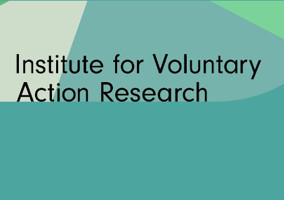The majority of project leaders at voluntary and community sector (VCS) organisations fear that pandemic-induced pressures have caused staff burnout, according to a new report.
People’s Health Trust surveyed VCS organisations between April 2020 and February 2022 on how the pandemic has affected their workforce’s mental health.
It found that by February, 82% of VCS project leaders were concerned that employees may experience burnout in the next six months. This is twice as much as the rate from November 2021.
Respondents cited increased workload, the need to provide more intensive support and the struggle to achieve a good work-life balance as the main factors for burnout.
The report warned of a looming mental health crisis among frontline community support workers, with services at risk of collapsing if the government does not intervene.
Increased demand on services
Of the 645 respondents, nearly nine in ten said they had experienced increases in demand for their services and activities since the pandemic began.
The report noted that while the Covid crisis had receded, the needs of disadvantaged people, such as extreme social isolation and financial insecurity, “continued to increase and evolve, requiring constant and often complex support”.
VCS organisations are often the first port of call for individuals experiencing mental health problems due to their accessibility and ongoing pressures on statutory mental health services.
The report said these organisations are “not specialists in providing people with support with mental health”, adding that responding to the needs of these individuals has added to the employees’ daily responsibilities.
Lack of knowledge and training
In spite of the increase in the number of people turning to VCS organisations, respondents said they do not have the necessary training to support communities with their mental health.
Nearly a third said they have received “no formal training at all” and almost half stated that they had received “some training” on supporting people’s mental health.
Plymouth-based Street Factory, a charity that uses hip hop to help young and vulnerable people, is among organisations that faced unprecedented demand.
Creative director Toby Gorniak said: “None of us were prepared to Covid-19. We were dealing with high demand from people contemplating suicide, experiencing panic attacks and generally feeling trapped. The workload was really high and it was very difficult for us.
“At the beginning of the pandemic there were just two of us delivering all the work. We literally worked seven days a week. We were on the phone or Zoom or FaceTime all the time. It was constant. It was tough. We had each other but there was nobody to help us.”
He added: “Staff and volunteers have supported people in their final moments, have been the only friend to isolated people during the lockdown, have provided emergency financial aid and food parcels, and have listened day in day out to the grief and despair felt by people over the past two years.”
People’s Health Trust: Government needs to step in
The report called on the government to take action to ensure “appropriate and accessible” mental health services and establish referral pathways for VCSE organisations.
It said: “There is an urgent need for the development of a co-ordinated strategy to support grassroots VCS workers to address the needs of their communities and themselves. People’s Health Trust believe the responsibility for resourcing this strategy lays with both the statutory sector and non-statutory funders.”
John Hume, chief executive officer of People’s Health Trust, said: “The risk to the mental health of the voluntary sector workers poses a huge problem for communities and the statutory services supporting them.
“Grassroots organisations are doing amazing work which has been largely been overlooked throughout the pandemic but it will soon become clear how much they do if we let this crisis worsen and their services cannot continue.”
Related articles












